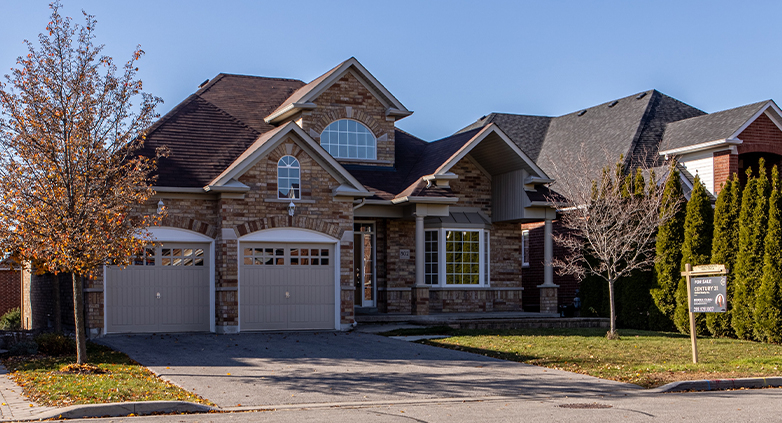Gravel vs Asphalt Driveway – Navigating the Best Choice
Choosing between gravel and asphalt for your driveway? It’s a common dilemma homeowners face. Each option has its unique benefits and drawbacks, affecting durability, maintenance, and aesthetic appeal.
Gravel driveways are cost-effective and offer a natural look that blends well with landscaping. They’re easy to install and can last many years with proper maintenance. However, gravel requires regular replenishment and can be messy in wet conditions. Asphalt driveways, on the other hand, provide a smooth, durable surface that withstands harsh weather well. They’re more expensive upfront but require less maintenance over time. Asphalt also enhances curb appeal with its clean, finished look.
Curious about which material is right for your home? Dive deeper into the pros, cons, and costs of gravel vs. asphalt driveways to make an informed decision that suits your needs and budget.
Gravel Driveways: In-depth Analysis
Exploring gravel driveways reveals their cost benefits, durability, and eco-friendly features. Here’s a closer look.
Composition and Materials
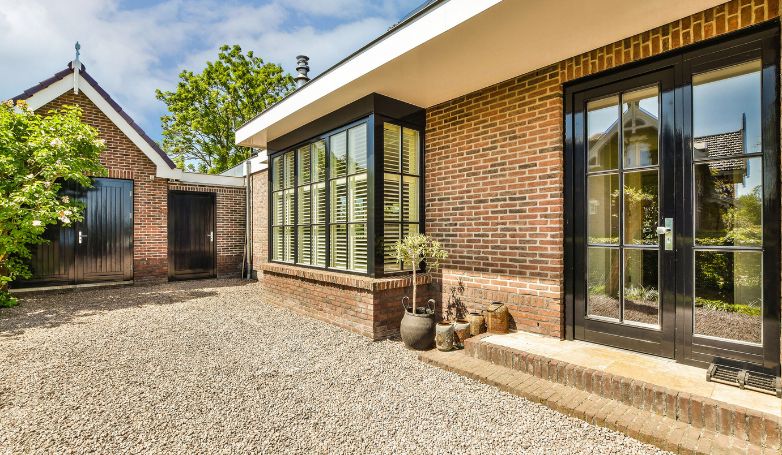
Gravel driveways consist of various types of rock, including pea gravel, crushed stone, and quarry process (QP). These materials offer a range of colors and textures, allowing for customization. The base layer typically includes larger stones, topped with smaller, finer gravel to create a stable surface. This variety ensures a balance between aesthetics and functionality, providing a natural, rugged look that complements different landscape designs.
Affordability
One of the primary advantages of this material is its cost-effectiveness. Compared to asphalt, concrete, or pavers, gravel is significantly cheaper both in terms of materials and installation. Homeowners can expect to spend less on upfront costs, making gravel an attractive option for those on a budget. Additionally, gravel driveways can be a DIY project, further reducing expenses.
Durability
While not as durable as asphalt or concrete, gravel driveways can last for decades with proper maintenance. The key to longevity is regular upkeep, including replenishing the gravel layer, grading the surface to prevent ruts, and ensuring proper drainage. Gravel’s flexibility allows it to adjust to ground movements, reducing the risk of cracking.
Drainage Benefits
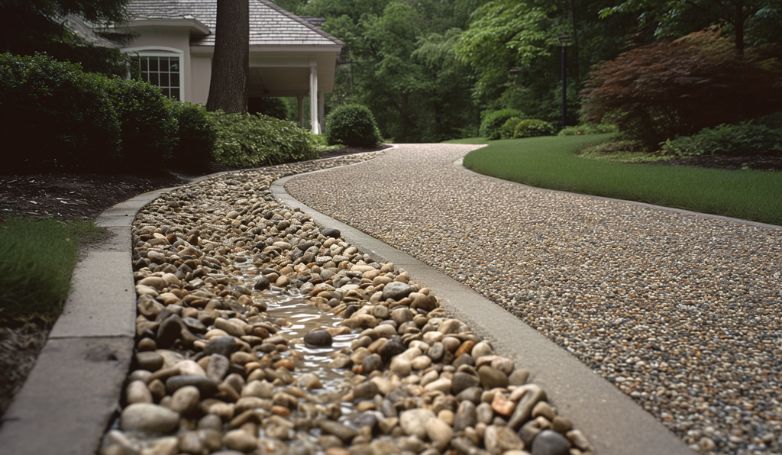
Gravel driveways excel in natural drainage. The loose composition of gravel allows water to filter through and enter the ground beneath, reducing runoff and preventing pooling water. This permeability makes gravel driveways an eco-friendly option, especially in areas prone to heavy rains or where water conservation is a priority.
Weed Growth Prevention
Preventing weed growth in gravel driveways requires initial effort but is manageable. Installing a high-quality landscape fabric beneath the gravel can significantly reduce weed emergence. Regular maintenance, such as applying herbicides or manually removing weeds, also helps keep the driveway clear. However, some homeowners appreciate the natural look that a few weeds can provide.
Asphalt Driveways: In-depth Analysis
Asphalt driveways are a staple in modern landscaping, offering a sleek appearance and robust performance. Let’s delve into their composition
Composition and Materials
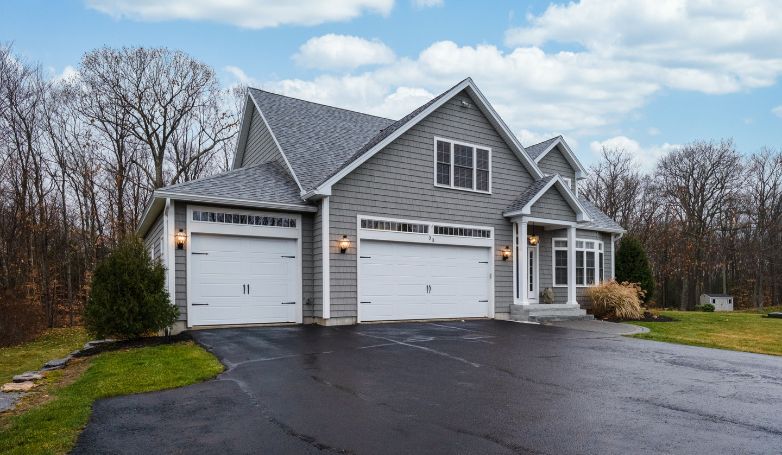
Asphalt driveways are made from a mixture of asphalt binder and mineral aggregate, creating a durable and smooth surface. This composition is designed to withstand various weather conditions and heavy traffic. The flexibility of asphalt helps prevent cracks during freeze-thaw cycles, making it ideal for colder climates. The dark color of asphalt also contributes to melting snow faster by absorbing more sunlight.
Affordability
Initial installation costs for asphalt driveways are higher than gravel but lower than concrete. The affordability of asphalt comes from its durability and lower maintenance costs over time. Resurfacing an asphalt driveway is also more cost-effective than complete replacement, making it a financially sensible choice for long-term homeowners.
Durability
Asphalt driveways are known for their resilience and longevity, typically lasting 20 to 30 years with proper maintenance. They can effectively handle the wear and tear of vehicle traffic and resist weather-related damages when regularly sealed. This durability makes asphalt a practical choice for those seeking a long-lasting driveway solution.
Drainage Benefits
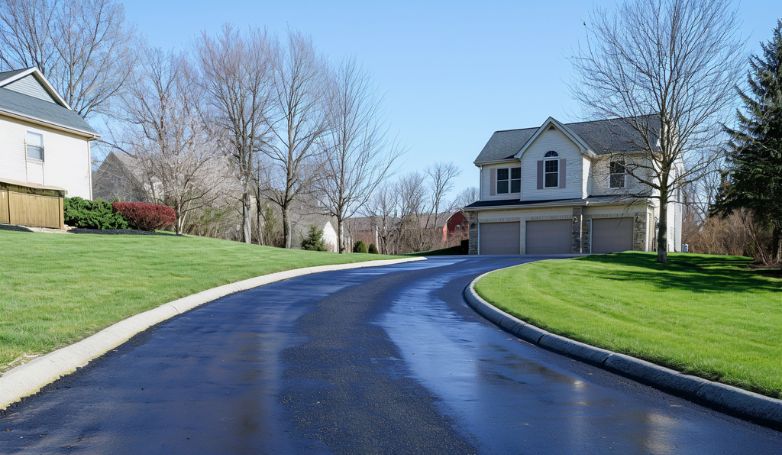
While not as permeable as gravel, asphalt driveways can still offer adequate drainage when properly installed. Techniques like sloping and the use of drainage channels help direct water away from the driveway and the home’s foundation, preventing water damage and pooling.
Weed Growth Prevention
Asphalt driveways provide an excellent barrier against weed growth due to their solid, seamless surface. Unlike gravel driveways, there are fewer opportunities for weeds to penetrate the surface. Regular maintenance, such as crack filling and sealcoating, further reduces the chance of weed invasion, keeping the driveway looking neat and well-kept.
Gravel vs Asphalt Driveway: Comparison
Deciding between a Gravel vs Asphalt Driveway goes beyond just choosing a material. It’s about finding a surface that complements your home’s aesthetic, balancing initial costs with long-term value, and considering the maintenance journey. Let’s delve into these aspects to help you make an informed decision.
Aesthetics and Curb Appeal
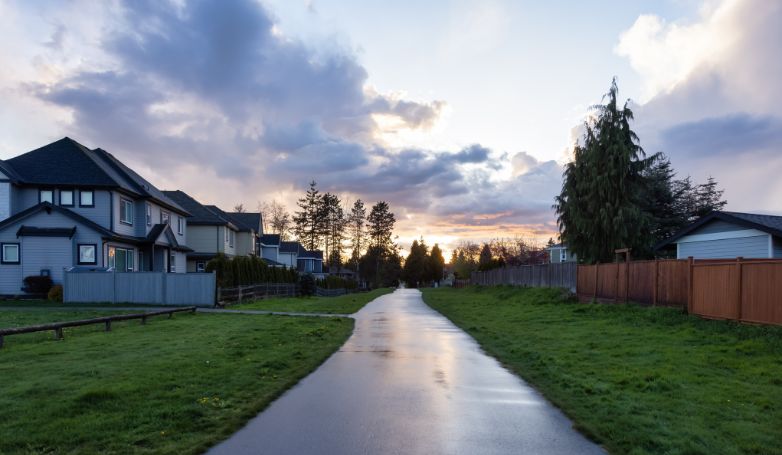
Gravel driveways offer a rustic charm that can enhance the natural beauty of a landscape, providing a more casual, country aesthetic. The variety of gravel colors and sizes allows for customization to match or complement the home and its surroundings. Conversely, asphalt driveways offer a sleek, uniform look that can add to the property’s curb appeal, presenting a more formal appearance.
The dark, smooth surface of an asphalt driveway can make a strong visual statement, contributing to a polished and well-maintained image. Both materials offer distinct aesthetic advantages, making it possible to align the driveway’s look with the homeowner’s personal style and the property’s overall design theme.
Installation
When installing a gravel driveway, the process begins with excavating the area to the desired depth, followed by laying down a geotextile fabric to prevent weed growth and ensure stability. A base layer of larger stones is then applied for drainage, topped with layers of smaller gravel for a smooth finish.
In contrast, installing an asphalt driveway involves preparing the base, grading for proper drainage, and then laying down hot asphalt mix, which is compacted for a smooth surface. Both require skilled execution but differ in complexity and the machinery needed, with asphalt requiring professional installation due to the need for specialized equipment.
Cost
Gravel driveways are celebrated for their cost-effectiveness. On average, homeowners might spend between $1 to $3 per square foot for materials, with total costs including installation ranging from $300 to $1,000 for a standard driveway. These costs can increase depending on the gravel type and any underlying layers needed for stability and drainage.
Asphalt driveways, while pricier upfront, offer durability that can be a smart long-term investment. The cost for asphalt paving typically ranges from $2 to $5 per square foot, translating to an average total of $2,000 to $4,000 for a standard driveway installation. This includes the cost of materials and professional installation, which is crucial for ensuring a smooth, long-lasting surface.
Maintenance
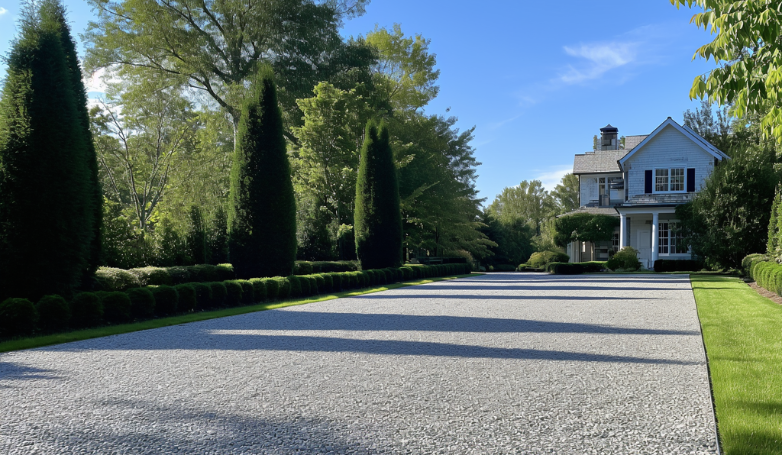
Gravel driveway maintenance is an ongoing task that includes topping up gravel, grading the surface to prevent ruts, and controlling weed growth. This type of driveway may need more frequent attention to maintain its appearance and functionality.
Asphalt driveways, however, require sealing every few years to prevent cracks and erosion, alongside periodic crack filling. Although asphalt may seem lower maintenance, both types need regular care to extend their lifespan and preserve their appearance, with specific actions varying based on the material’s nature and the driveway’s usage.
Environment
From an environmental standpoint, gravel driveways offer superior drainage, allowing rainwater to percolate through the ground, reducing runoff and supporting groundwater recharge. This feature makes them an eco-friendly option, particularly in areas prone to flooding or with water conservation concerns.
Asphalt driveways, however, are less permeable, potentially contributing to runoff issues but can be recycled at the end of their life, reducing waste. Both materials have environmental impacts, from the extraction and production of raw materials to their end-of-life disposal or recycling, underscoring the importance of considering sustainability in driveway material choice.
Factors to Consider When Choosing Between a Gravel or Asphalt Driveway
When faced with the decision of gravel vs asphalt driveway, it’s crucial to carefully consider various factors. Exploring these elements will guide you in making an informed choice that harmonizes with your lifestyle, fits within your budget, and aligns seamlessly with your aesthetic preferences. From maintenance requirements to long-term value, each factor plays a role in determining the most suitable option for your unique needs.”
Climate and weather conditions
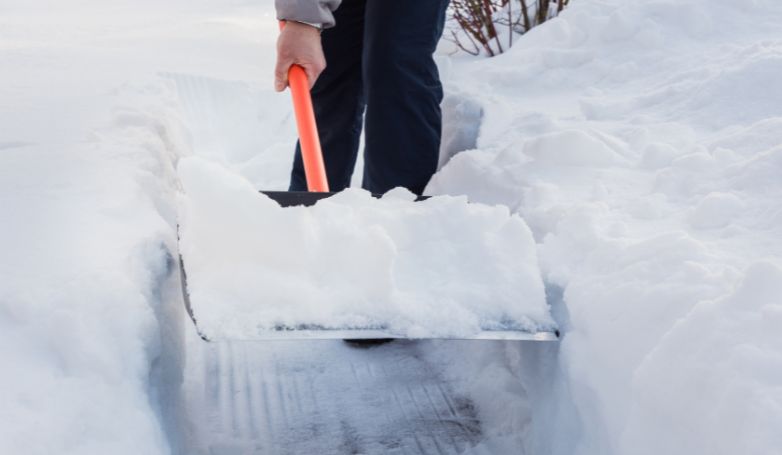
Gravel driveways can shift and erode under heavy rainfall or flood conditions, requiring more frequent repairs in wet climates. However, they handle freeze-thaw cycles well, as gravel naturally adjusts without cracking.
Asphalt, while durable and less prone to erosion, can suffer in extreme heat, becoming soft and tacky, and may crack under freeze-thaw conditions if not properly maintained. Consider your area’s weather patterns to choose a material that will withstand local conditions effectively.
Budget considerations
Gravel is generally less expensive upfront, both in terms of materials and installation, making it an attractive option for those on a tight budget. However, the long-term maintenance costs can add up.
Asphalt, although more costly at the outset, tends to have lower maintenance costs over its lifespan, potentially offering better long-term value. Assessing both the initial investment and future expenses will help guide your choice to align with your financial situation.
Maintenance preferences
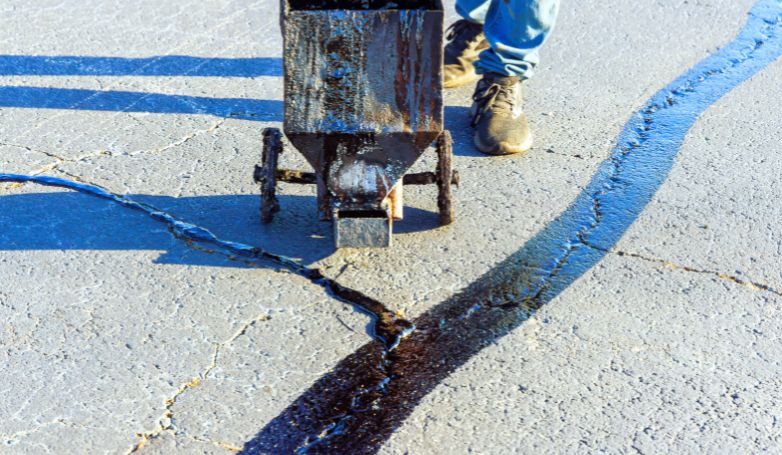
Gravel driveways require consistent upkeep, including adding more gravel, grading, and weed control, to maintain their condition and appearance.
Asphalt driveways need less frequent maintenance but require specific care, such as crack filling and periodic sealing, to extend their lifespan and preserve their look. Consider how much time and effort you are willing to invest in driveway maintenance when making your decision.
Aesthetic preferences and property value
The appearance of your driveway can impact the overall aesthetic of your property and, potentially, its value. Gravel offers a more natural, textured look that can complement a variety of landscaping styles. It allows for customization through the choice of gravel type and color.
Asphalt provides a sleek, uniform appearance that can enhance the curb appeal of more modern homes, potentially increasing property value. Consider which material best suits the style of your home and how it might affect your property’s marketability in the future.
Crushed Asphalt vs Gravel Driveway: Another Alternative
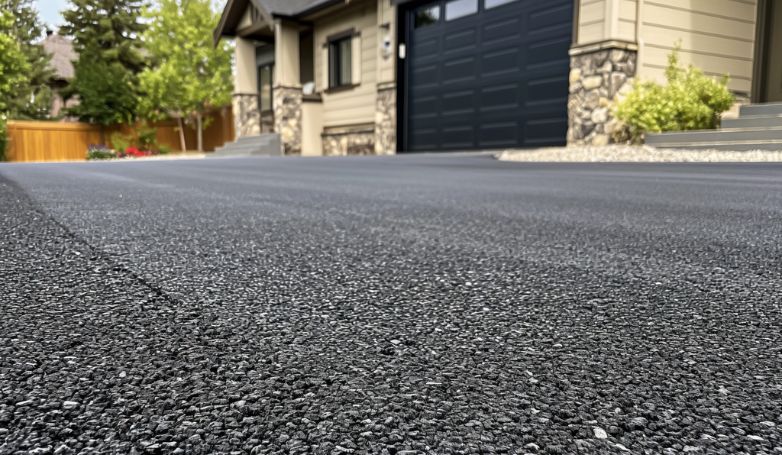
Introducing an innovative alternative, crushed asphalt presents a compelling choice in the perennial debate over driveway materials. While gravel and traditional asphalt each have their merits, crushed asphalt combines elements of both, offering enhanced durability and a distinct aesthetic. This eco-friendly option repurposes recycled asphalt, contributing to sustainability.
Its textured surface provides excellent traction, and the material’s ability to self-heal minor cracks minimizes maintenance concerns. Cost-effectiveness, coupled with the unique blend of qualities, positions crushed asphalt as a versatile and eco-conscious solution for homeowners seeking a resilient and visually appealing driveway alternative.
FAQs about Gravel vs asphalt driveway
As homeowners weigh the merits of a gravel vs asphalt driveway, key considerations emerge. So, let’s take a look into the frequently asked questions.
Is a gravel driveway better than asphalt?
The choice hinges on priorities. Gravel offers cost-effectiveness and low-maintenance benefits, while asphalt ensures durability and a polished finish, addressing different homeowner needs and preferences.
What are the cons of a gravel driveway?
Gravel driveways may need more upkeep, lack asphalt’s smoothness, and face potential issues like weed growth, factors to consider alongside its cost-effectiveness.
Is gravel more expensive than asphalt?
Gravel is upfront budget-friendly, but asphalt’s durability and lower maintenance costs make it a wise long-term investment for homeowners seeking lasting value.
What is the best material to use on a driveway?
It depends on needs. Gravel suits a budget, offering a cost-effective solution, while asphalt balances durability and aesthetics for those prioritizing long-term value and a sleek appearance.
What type of driveway lasts the longest?
Asphalt tends to outlast gravel, offering better durability and requiring fewer repairs over time, making it a preferred choice for homeowners seeking a resilient and lasting driveway solution.
What is the cheapest type of driveway?
Gravel is often the most cost-effective choice initially, making it popular among budget-conscious homeowners looking for an economical yet functional driveway solution.
Conclusion
In conclusion, the decision between a gravel and asphalt driveway hinges on individual priorities and considerations. Gravel driveways offer a cost-effective, natural aesthetic with eco-friendly drainage, while asphalt driveways provide durability and a polished finish, albeit with a higher upfront cost. The introduction of crushed asphalt as a sustainable alternative adds a nuanced dimension to the choice. Ultimately, the ideal selection depends on factors such as climate, budget, maintenance preferences, and desired curb appeal. By delving into the nuances of each material, homeowners can make an informed decision tailored to their unique needs, ensuring a durable, visually appealing, and budget-friendly driveway solution.

